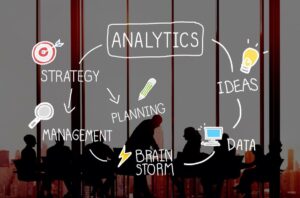The Education Blog

How to Develop Critical Thinking Skills for Academic Success
In today’s busy and information-filled world, critical thinking is essential for success in school and life. It’s more than just memorising facts. It means analysing, questioning, and evaluating information to make good judgments. It doesn’t matter if you’re a student dealing with difficult subjects, writing essays, or solving real problems. Boosting your critical thinking skills can help improve your performance. In this guide, you’ll discover what critical thinking is, why it’s important in school, and useful strategies to build and use it well.
What is Critical Thinking?
Critical thinking means looking at information carefully. It involves checking different viewpoints and making smart conclusions. It involves:
- Analysis: Breaking down complex information into smaller, manageable parts.
- Evaluation: Assessing the credibility, relevance, and accuracy of information.
- Interpretation: Drawing logical inferences and identifying underlying assumptions.
- Problem-solving: Applying logical reasoning to find solutions to complex problems.
- Reflection: Considering the strengths and weaknesses of one’s own thinking process.
Critical thinking helps students understand subjects better in school. It also allows them to make arguments based on evidence and think for themselves.

Why Critical Thinking is Essential for Academic Success
Developing strong critical thinking skills offers several benefits for students, including:
- Sharpened problem-solving prowess: Critical thinkers dissect complex puzzles, crafting creative solutions.
- Heightened comprehension and analysis: Students master interpretation, unearthing biases and hidden assumptions.
- Polished writing and research skills: Critical thinking sharpens arguments and refines source evaluation.
- Elevated exam scores and performance: Studies reveal that those who think critically excel in tests, essays, and presentations.
- Gear up for future challenges: Critical thinking empowers smart choices in work and life, beyond the classroom.
Key Strategies to Develop Critical Thinking Skills
Ask Questions and Challenge Assumptions
A great way to boost critical thinking is by asking good questions. Instead of passively accepting information, question its validity and reliability. When reading or listening to a lecture, consider:
- Who is the author or source? Are they credible and trustworthy?
- What evidence is presented? Is it factual or opinion-based?
- Are there any biases? Consider whether the information is influenced by a particular agenda.
Challenging assumptions lets you see topics in different ways. This helps you learn more deeply and think analytically.
Engage in Active Reading and Note-Taking
Reading critically is essential for developing analytical skills. Instead of passively absorbing information, actively engage with the material:
- Annotate and highlight key points while reading.
- Summarise complex concepts in your own words to enhance comprehension.
- Identify patterns and connections between different texts or subjects.
- Question the author’s claims and consider counterarguments.
Active reading strengthens your ability to analyse texts critically and draw informed conclusions.
Practice Problem-Solving and Analytical Exercises
Improving your analytical thinking requires regular practice. Engage in activities that challenge your reasoning skills, such as:
- Brain teasers and logic puzzles: These enhance your ability to identify patterns and think systematically.
- Case studies: Analysing real-life scenarios sharpens your problem-solving abilities.
- Debates or group discussions: These encourage you to consider different viewpoints and defend your arguments with evidence.
- Scenario analysis: Practice evaluating hypothetical situations to predict outcomes and assess risks.

Develop Evidence-Based Arguments
When constructing arguments or essays, focus on using reliable evidence rather than opinions. To strengthen your reasoning:
- Use credible sources: Rely on academic journals, scholarly articles, and reputable publications.
- Cite evidence accurately: Support claims with relevant data, statistics, and examples.
- Consider counterarguments: Acknowledge opposing viewpoints and refute them with logical reasoning.
Crafting evidence-based arguments demonstrates your ability to think critically and form well-rounded conclusions.
Reflect and Self-Assess Regularly
To continuously improve your critical thinking skills, practise regular reflection:
- Review your decision-making process: Consider what influenced your judgments and whether they were based on sound reasoning.
- Spot biases: Think about how your personal biases may have shaped your conclusions. Consider ways to reduce their impact.
- Seek feedback: Get helpful criticism from friends or teachers to improve your thinking.
Self-assessment helps you spot areas to improve and build a more analytical mindset over time.
Applying Critical Thinking in Academic Scenarios
Writing Essays and Research Papers
Critical thinking is essential for crafting high-quality essays and research papers. Apply the following strategies:
- Formulate clear, concise theses: Base your thesis statement on well-reasoned claims.
- Use logical evidence: Support your arguments with factual, peer-reviewed evidence.
- Evaluate conflicting sources: Compare multiple viewpoints to create a balanced, objective analysis.

Analysing Data and Research
When interpreting data or research studies, apply critical thinking by:
- Questioning data sources: Verify the credibility and reliability of the data.
- Identifying patterns and trends: Analyse the implications and limitations of the data.
- Spotting biases: Check if the research has conflicts of interest or sample biases.
Making Informed Decisions
In exams or coursework, apply critical thinking by:
- Look at all choices: Think about the good and bad sides of each answer before deciding.
- Support your choices: Use reasons and evidence to back up your answers, even in multiple-choice questions.
- Reviewing mistakes: Reflect on incorrect answers to identify reasoning flaws and improve future performance.
Sharpen Your Mind: Embrace Critical Thinking for Academic Growth
Critical thinking is key to academic and career success. It helps students make smart choices, analyse information well, and build strong arguments. Ask questions, read actively, and think critically. These steps will boost your critical thinking skills and help you do well in your studies. Regular practice and self-checks will sharpen your skills. This way, you can handle academic challenges with confidence. Apply these strategies today. They will enhance your problem-solving skills, boost your performance, and help you develop a lasting habit of critical thinking.









